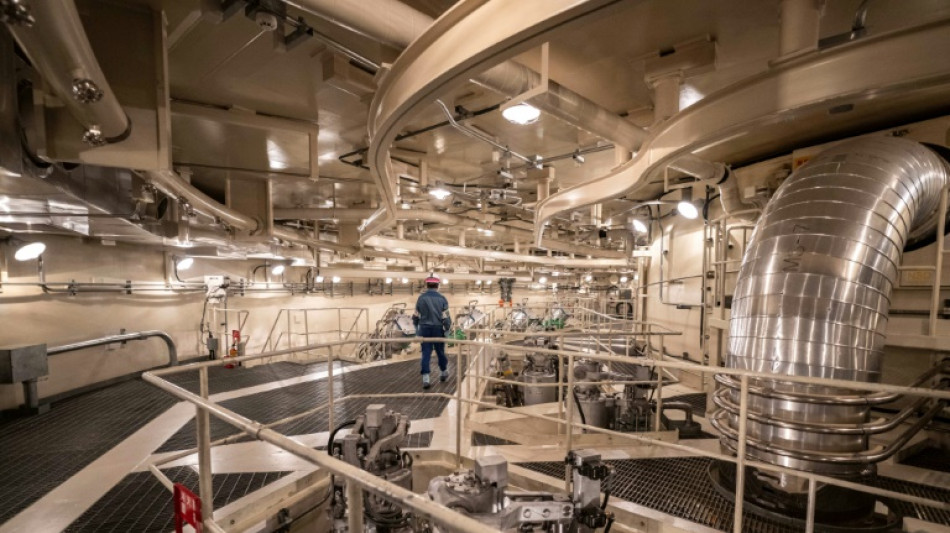
-
 Trump announces tariffs on Iran trade partners as protest toll rises
Trump announces tariffs on Iran trade partners as protest toll rises
-
Sabalenka favourite at Australian Open but faces Swiatek, US threats

-
 Gay Australian footballer Cavallo alleges former club was homophobic
Gay Australian footballer Cavallo alleges former club was homophobic
-
Trump has options on Iran, but first must define goal

-
 Paris FC's Ikone stuns PSG to knock out former club from French Cup
Paris FC's Ikone stuns PSG to knock out former club from French Cup
-
Australia's ambassador to US leaving post, marked by Trump rift

-
 Slot angered by 'weird' Szoboszlai error in Liverpool FA Cup win
Slot angered by 'weird' Szoboszlai error in Liverpool FA Cup win
-
Szoboszlai plays hero and villain in Liverpool's FA Cup win

-
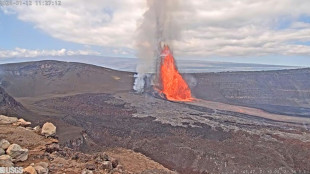 Hawaii's Kilauea volcano puts on spectacular lava display
Hawaii's Kilauea volcano puts on spectacular lava display
-
US stocks at records despite early losses on Fed independence angst
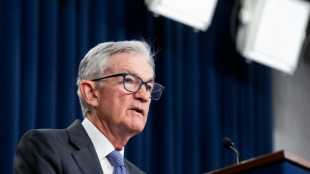
-
 Koepka rejoins PGA Tour under new rules for LIV players
Koepka rejoins PGA Tour under new rules for LIV players
-
Ex-France, Liverpool defender Sakho announces retirement

-
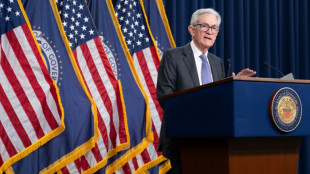 Jerome Powell: The careful Fed chair standing firm against Trump
Jerome Powell: The careful Fed chair standing firm against Trump
-
France scrum-half Le Garrec likely to miss start of Six Nations

-
 AI helps fuel new era of medical self-testing
AI helps fuel new era of medical self-testing
-
Leaders of Japan and South Korea meet as China flexes muscles
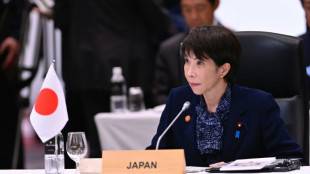
-
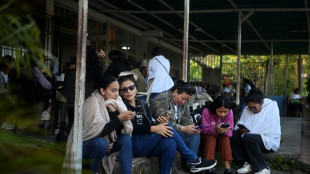 Trump sets meeting with Venezuelan opposition leader, Caracas under pressure
Trump sets meeting with Venezuelan opposition leader, Caracas under pressure
-
Australia captain Alyssa Healy to retire from cricket

-
 US 'screwed' if Supreme Court rules against tariffs: Trump
US 'screwed' if Supreme Court rules against tariffs: Trump
-
NATO, Greenland vow to boost Arctic security after Trump threats

-
 Israel to take part in first Eurovision semi-final on May 12
Israel to take part in first Eurovision semi-final on May 12
-
How Alonso's dream Real Madrid return crumbled so quickly

-
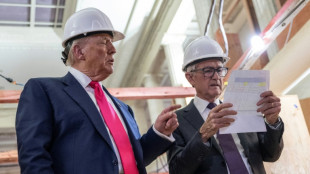 Ex-Fed chiefs, lawmakers slam US probe into Jerome Powell
Ex-Fed chiefs, lawmakers slam US probe into Jerome Powell
-
Former Panama leader on trial over mega Latin America corruption scandal
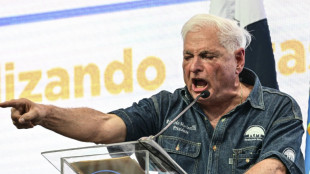
-
 Trump keeping Iran air strikes on the table: White House
Trump keeping Iran air strikes on the table: White House
-
Paramount sues in hostile bid to buy Warner Bros Discover

-
 Ugandan opposition leader Bobi Wine warns of protests if polls rigged
Ugandan opposition leader Bobi Wine warns of protests if polls rigged
-
Airbus delivers more planes in 2025

-
 Alonso leaves Real Madrid, Arbeloa appointed as coach
Alonso leaves Real Madrid, Arbeloa appointed as coach
-
UK pays 'substantial' compensation to Guantanamo inmate: lawyer
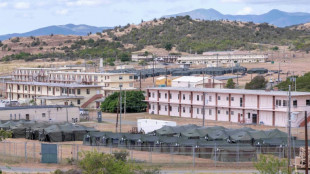
-
 Iran protest toll mounts as government stages mass rallies
Iran protest toll mounts as government stages mass rallies
-
Gold hits record high, dollar slides as US targets Fed
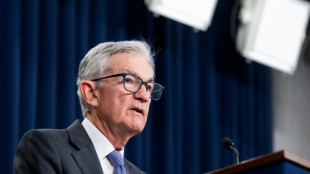
-
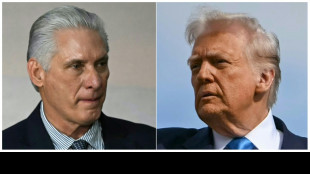 Cuba denies being in talks with Trump on potential deal
Cuba denies being in talks with Trump on potential deal
-
Scientists reveal what drives homosexual behaviour in primates

-
 Venezuela releases more political prisoners as pressure builds
Venezuela releases more political prisoners as pressure builds
-
15,000 NY nurses stage largest-ever strike over conditions

-
 Rosenior plots long Chelsea stay as Arsenal loom
Rosenior plots long Chelsea stay as Arsenal loom
-
Zuckerberg names banker, ex-Trump advisor as Meta president

-
 Reza Pahlavi: Iran's ex-crown prince dreaming of homecoming
Reza Pahlavi: Iran's ex-crown prince dreaming of homecoming
-
Venezuela releases more political prisoners
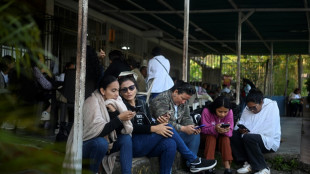
-
 Kenya's NY marathon champ Albert Korir gets drug suspension
Kenya's NY marathon champ Albert Korir gets drug suspension
-
US prosecutors open probe of Fed chief, escalating Trump-Powell clash
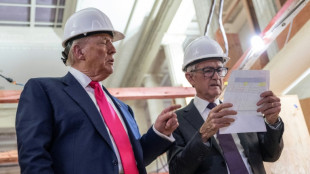
-
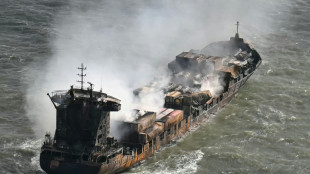 Russian captain in fiery North Sea crash faces UK trial
Russian captain in fiery North Sea crash faces UK trial
-
Carrick is frontrunner for interim Man Utd job: reports

-
 Iran government stages mass rallies as alarm grows over protest toll
Iran government stages mass rallies as alarm grows over protest toll
-
Variawa leads South African charge over Dakar dunes
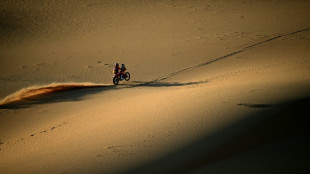
-
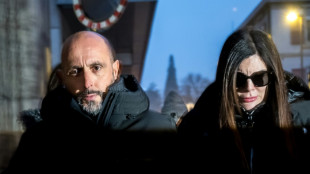 Swiss inferno bar owner detained for three months
Swiss inferno bar owner detained for three months
-
Heathrow airport sees record high annual passenger numbers
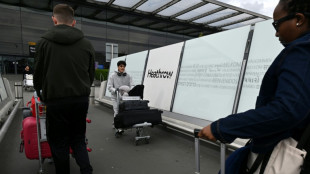
-
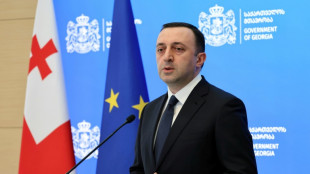 Georgia jails ex-PM for five years amid ruling party oustings
Georgia jails ex-PM for five years amid ruling party oustings
-
Kyiv buries medic killed in Russian drone strike


Japan shifting back to nuclear to ditch coal, power AI
Glinting in the sun by the world's biggest nuclear plant, the Sea of Japan is calm now. But as the huge facility gears up to restart, Kashiwazaki-Kariwa has a new tsunami wall, just in case.
Japan pulled the plug on nuclear power after the 2011 Fukushima disaster, but with the G7's dirtiest energy mix, it is seeking to cut emissions, and atomic energy is making a steady comeback, in part because of AI.
At the 400-hectare (1,000-acre) KK plant, shown to AFP in an exclusive tourthe 15-metre (50-foot) wall is just one measure to prevent another catastrophe and reassure the public and Japan's jittery neighbours.
"We believe that (a similar accident to Fukushima) could be largely avoided," Masaki Daito, KK deputy superintendent, told AFP. Japan now has "the strictest (regulatory) standards in the world".
The facility in central Japan -- like the nation as a whole -- is no stranger to earthquakes, having been shut down for two years for "upgrades" after a big jolt in 2007.
At Fukushima, a 15-metre tsunami cut power lines and flooded backup generators, disabling water pumps needed to keep nuclear fuel cool.
In this century's worst nuclear accident, three reactors went into meltdown and hydrogen explosions blew off roofs and released radioactivity into the air.
To keep the power running in the event of a quake, KK has new backup power supply vehicles on higher ground, plus "blow-out" panels and a new vent meant to filter out 99.9 percent of any radioactive particles.
In addition to the recently built sea wall, an embankment has been enlarged and reinforced. In corridors deep inside the reactor building, luminous stickers mark pipes and faucets.
"The lights all went out at Fukushima and no one could see," Daito said.
- Climate goals -
Before the 2011 quake and tsunami, which killed around 18,000 people, nuclear power generated about a third of Japan's electricity, with fossil fuels contributing most of the rest.
All of Japan's 54 reactors were shut down afterwards, including those at KK. To keep the lights on, resource-poor Japan has hiked imports of natural gas, coal and oil while increasing solar power.
But fossil fuels are expensive, with imports last year costing Japan about $510 million a day.
It is also not helping Japan achieve its climate pledges.
The E3G think-tank ranks Japan in last place -- by some distance -- among G7 nations on decarbonising their power systems.
Britain recently closed its last coal power station. Italy, France and Germany plan to follow suit. Japan and the United States, however, have no such target.
The government is striving for "carbon neutrality" by 2050 and to cut emissions by 46 percent by 2030 from 2013 levels.
It wants to increase the share of renewables to 36-38 percent from around 20 percent and cut fossil fuels to 41 percent from around two-thirds now.
Hanna Hakko, a Japan-based energy expert at E3G, thinks Japan could aim higher and have renewables generate 70-80 percent of its power by 2035.
"This would allow Japan to phase out coal, as it has committed to doing together with its G7 peers," Hakko told AFP.
- Nuclear resurgence -
Yet even under this scenario, the remainder would need to be covered by gas and nuclear energy.
Under its current plan, Japan aims for nuclear power to account for 20-22 percent of its electricity by 2030, up from well under 10 percent now.
Japan in late 2022 decided to accelerate reactor restarts and to extend operating time for nuclear reactors to 60 years from 40.
Nine of Japan's 33 still-operable reactors are currently online. At KK, unit seven is ready to join them once the local governor approves, with others set to follow.
Because of tougher safety rules since Fukushima, getting approval is a slow process. One restart was recently blocked because of earthquake risk.
Business groups remain worried about power shortages, particularly as Japan seeks to go big in energy-hungry data centres for artificial intelligence (AI).
"Japan has large untapped potential for renewable energy development," new Prime Minister Shigeru Ishiba told local media last week ahead of elections on October 27.
But he added: "Obviously, nuclear energy needs to be utilised."
- Megaquake -
The meltdown at Fukushima still looms large for people in Japan and elsewhere.
Japan is hit by hundreds of earthquakes per year -- mostly minor -- and in August, it issued a first "megaquake advisory" for its Pacific coast.
The alert was lifted after a week, but the government still sees a roughly 70 percent chance of a monster tremor within 30 years.
Making Fukushima fully safe, meanwhile, has also barely begun.
Japan last year started to release into the Pacific Ocean some of the 540 Olympic pools' worth of treated cooling water amassed since 2011. China banned Japanese seafood imports in response.
Engineers still have not worked out what to do with 800 tons of highly radioactive fuel and rubble. Humans still cannot enter the wrecked facility.
Mototsugu Oki, picnicking with his family at the beach by KK, said that like many Japanese, the Fukushima accident turned him off nuclear power for good.
"It is operated by human beings, and human beings naturally make mistakes," he told AFP.
N.Shalabi--SF-PST



